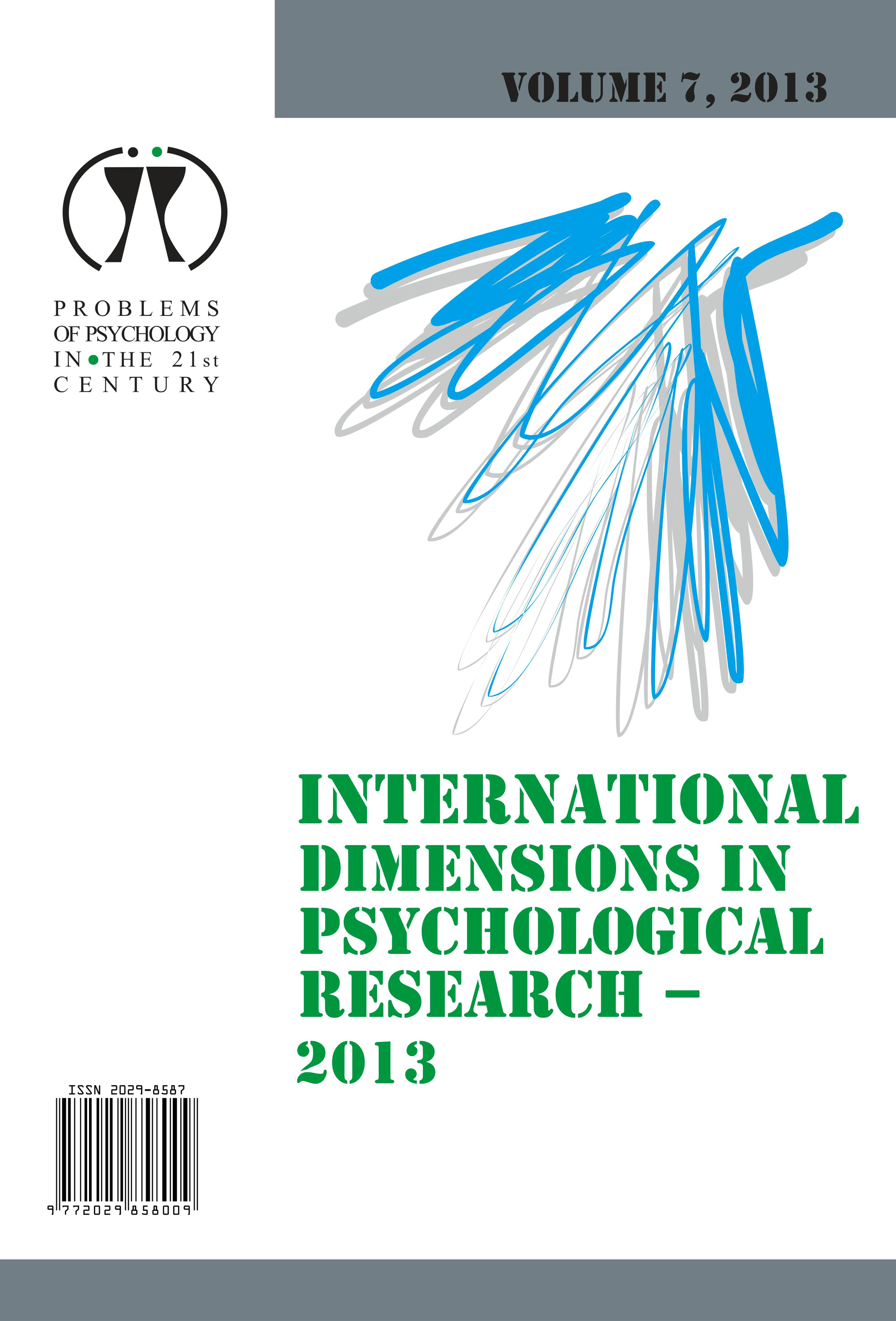CHILDHOOD EXPERIENCES OF RECIDIVISTS AS PREDICATORS OF CRIMINOGENIC LIFESTYLE
CHILDHOOD EXPERIENCES OF RECIDIVISTS AS PREDICATORS OF CRIMINOGENIC LIFESTYLE
Author(s): Arkadiusz UrbanekSubject(s): Psychology, Developmental Psychology
Published by: Scientia Socialis, UAB
Keywords: childhood; parents – children; pathogenic factors; relations; socialization;
Summary/Abstract: The research tackles the issue of the reconstruction of childhood experiences of recidivists. The aim of these reflections is to search for cause and effect relation between socialisation experiences and further criminogenic lifestyle. It is an interdisciplinary work due to the fact that the issue of socialisation, transmission of behaviour patterns and environmental influences reflect scientific domains of psychology, criminology and resocialisation pedagogy. Accomplishing the objective to reconstruct experiences and their relation with subsequent deviant activities a source material from auto-anamnestic interviews was applied. During the research 100 respondents aged 22 to 30 were interviewed. Each of them has already been sentenced repeatedly for criminal offences, serving the punishment of deprivation of liberty. The research was conducted in 2013. In terms of methodology the data analysis concentrated on the qualitative model of structural and reconstruction research, whereas the results were presented within cause-effect matrixes. The construction of each matrix was designed to classify and present common areas of experiences that occurred within biographies of the individual respondents. Therefore, the research, despite its qualitative nature, categorised the socialisation experiences and the predicators of criminogenic lifestyle subject to subgroup classification. The procedure of analysis was dual, i.e. the cause matrixes of 33 random cases were firstly designed, and then applied to replicate the experiences of the rest of the respondents from the group. It allowed not only to distinguish similar experiences but also consolidated the matrixes as tools for further interpretation. The results of research of socialisation experiences and predicators of criminogenic lifestyle are applicable for penitentiary resocialisation practice and psychological support for the prisoners. Moreover, the research results revealed crucial areas of disturbances, such as isolation from the relatives, void of emotional contacts, susceptibility to deviant group influences, or reducing the hierarchy of values to the desires of possession, unfulfilled in their childhood.
Journal: Problems of Psychology in the 21st Century
- Issue Year: 7/2013
- Issue No: 1
- Page Range: 66-82
- Page Count: 17
- Language: English

